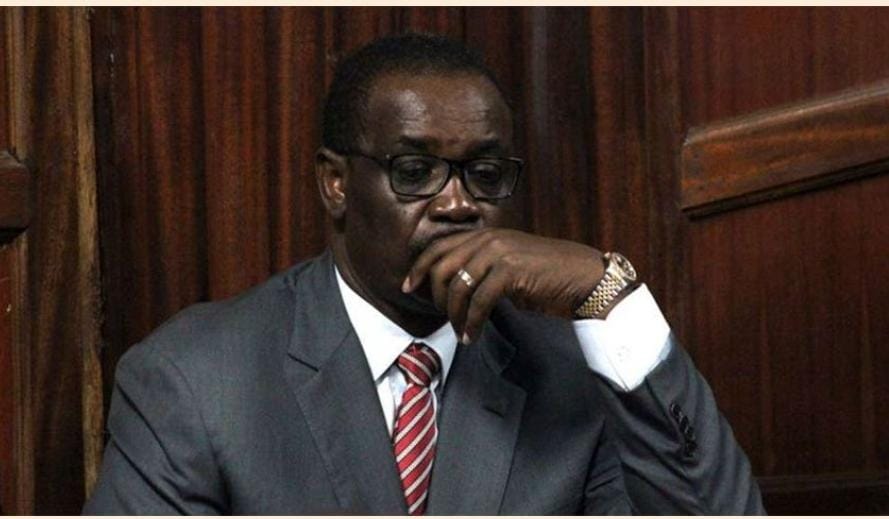The Court of Appeal has dismissed a petition by former Nairobi Governor Dr. Evans Kidero seeking to prevent the Ethics and Anti-Corruption Commission (EACC) from investigating his bank accounts.
The decision, delivered by Justices Daniel Musinga, Asike Makhandia, and Patrick Kiage on Friday, September 20, 2024, clears the way for the EACC to proceed with its investigations into allegations of corruption, economic crimes, and unexplained wealth linked to Kidero.
Kidero initially sought refuge in the courts in 2016 after the EACC obtained orders from the Chief Magistrate’s Court to access multiple bank accounts associated with him.
The investigation revolves around accusations of illicit wealth allegedly amassed during his tenure as Nairobi Governor and Managing Director of Mumias Sugar Company.
The High Court, in a 2018 ruling delivered by Justices George Odunga, Enoch Mwita, and John Mativo, had already dismissed Kidero’s efforts to halt the probe, a decision that prompted him to escalate the matter to the Court of Appeal.
In his appeal, Kidero argued that the legal provisions granting the EACC its investigative powers were unconstitutional and violated his fundamental rights and freedoms.
However, the appellate judges found no merit in their arguments, upholding the previous ruling and reaffirming the legitimacy of the EACC’s investigative authority.
With this latest judgment, the EACC is now free to conclude its investigations, which have been ongoing for several years, raising the prospect of further legal scrutiny of Kidero’s financial dealings during his time in public office.
The ruling represents a significant milestone in Kenya’s ongoing fight against corruption, as the EACC continues to target high-profile individuals suspected of economic crimes.
Kidero, who has maintained his innocence, now faces the possibility of more rigorous legal action as the investigations near their conclusion.
The case is being closely watched as part of broader efforts to combat graft among public officials, with the outcome potentially setting a precedent for other corruption-related inquiries across the country.





